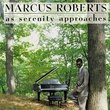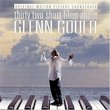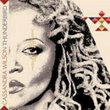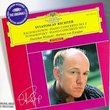| All Artists: Bela Bartok, Johannes Brahms, Georg Solti, Murray Perahia Title: Bartók: Sonata for Two Pianos & Percussion/Brahms: Variations on a Theme by Joseph Haydn for 2 Pianos, Op. 56b Members Wishing: 0 Total Copies: 0 Label: Sony Release Date: 10/25/1990 Genre: Classical Styles: Chamber Music, Historical Periods, Modern, 20th, & 21st Century Number of Discs: 1 SwapaCD Credits: 1 UPC: 074644262520 |
Search - Bela Bartok, Johannes Brahms, Georg Solti :: Bartók: Sonata for Two Pianos & Percussion/Brahms: Variations on a Theme by Joseph Haydn for 2 Pianos, Op. 56b
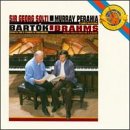 | Bela Bartok, Johannes Brahms, Georg Solti Bartók: Sonata for Two Pianos & Percussion/Brahms: Variations on a Theme by Joseph Haydn for 2 Pianos, Op. 56b Genre: Classical
|
Larger Image |
CD DetailsSimilarly Requested CDs
|
CD ReviewsA rhythmic and harmonic wonder Archel | Sydney, Australia | 10/03/2003 (5 out of 5 stars) "The Sonata for Two Pianos and Percussion is (along with the more popular Music for Strings, Percussion and Celesta) the pinnacle of Bartok's fascination with exploring the percussive timbres of the piano and the expressive capacity of percussion. The pianos of Sir Georg Solti and Murray Perahia and the percussion section (3 kettledrums, xylophone, 2 side drums (one without snares), cymbals, suspended cymbals, bass drum, triangle and tam-tam) of David Corkhill and Evelyn Glennie are pretty much equals. The result is a propulsive, thorny, cerebral, rhythmically and harmonically intricate masterpiece, which exudes a distinct mood of mystery. Listening to it, I can't help but feel it must have been a major influence on the great Cecil Taylor and his school of violently percussive and dense avant-garde/free piano improvising. Although relatively obscure, this is as stunning as anything I've heard from Bartok's range of unique masterpieces (I think I've heard them all except for the String Quartets). The performances are stellar all around. The quality of the sound engineering and recording should impress even the fussiest audiophiles. The Brahms piece is very beautiful, but listening to it straight after Bartok's Sonata is a bit of an anti-climax, as it is much more timid and conventional." The Real Gem is the Brahms Archel | 11/08/2001 (5 out of 5 stars) "I bought this CD for the Bartok, which is excellent as expected. But I was surprised to discover my love for the Haydn variations by Brahms and performed with lovely vigour on this CD.A worthwhile purchase!" Interesting but not my favourite. Francisco Yanez Calvino | Santiago de Compostela, GALIZA, Spain. | 10/27/2005 (3 out of 5 stars) "
This was the first recoding I had of this masterwork by Bela Bartók, quite unique in its genre and one of his most personal compositions. A long time I thought this was a very, very fine performing of the Sonata. Now, after listening some other versions (Lebeque, Argerich...), but, overall, Kontarsky's one, I really think it's a good recording but not between the best available. Bartók's use of the piano was very close to percussion, quite the strongest part of the sonata, even harder than the percussionists in some parts of the score. This is very typical from the time of Bartók's First Piano Concert, that has a second movement quite in the same style of this Sonata. Kontarsky brothers, like Pollini or Zimerman (both in them recordings of the First Concert for DG) has shown how to play a much more strong, powerful and bartokian piano on them performing. Solti knows Bartók's language very well, but much more better as conductor than as a pianist, and Perahia is clearly out of repertoire and style. Even so, it's a quite good recording, but not the best, in my opinion. Deutsche Grammophon should think about releasing one more time Kontarky's version, the best ever recorded. Good DDD sound and poor booklet. " |

 Track Listings (13) - Disc #1
Track Listings (13) - Disc #1